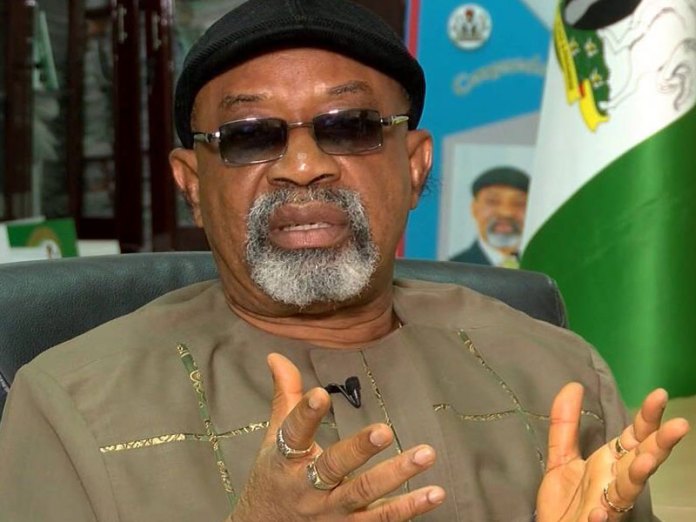- We’ll Not Reverse Ultimatum on Minimum Wage – Labour
The organised labour has said that the 14-day ultimatum it gave the Federal Government from September 12, to implement the new minimum wage will not be reversed or extended.
It stated this in reaction to a directive by the Minister of Labour, Dr Chris Ngige, asking the New Minimum Wage Committee to adjourn indefinitely to enable him to make further consultation with the government.
The minister’s pronouncement came at a time the committee was finalising its work of arriving at a definite figure for submission to the government.
Speaking with our correspondent on the development, the President, United Labour Congress, Joe Ajaero, stated, “We cannot and we will not reverse ourselves on the actions we have taken so far to ensure that the rights of Nigerian workers are protected. Some have asked us to extend the date, but such will not happen.”
Ajaero noted that the organised labour viewed Ngige’s latest pronouncement with suspicion, saying, “This new antic certainly is not acceptable to Nigerian workers who have been expecting a new national minimum wage since 2016, but who out of uncommon sacrifice and patriotism hearkened to government’s appeal and the process was delayed.”
The NMWC was inaugurated in November 2017 but commenced work in March 2018 with timelines to deliver on its mandate of arriving at a new national minimum wage by August/September this year.
The ULC president said, “In the course of the work of the committee, members had ample time to consult. In any case, the committee was satisfied that it received memoranda and inputs from 21 state governments, specialised agencies of the Federal Government, the Organised Private Sector, organised labour and the general public.
“We even recall that Ngige himself had assured workers during the 40th anniversary celebration of the Nigeria Labour Congress in February this year that workers should expect a new national minimum wage in September this year.
“We wonder what has gone amiss between February 28 and now. On the other hand, do we assume that the minister is acting a script?”
Ajaero added, “In the light of this, his pronouncement is capable of rubbishing the work of the committee as well as raising serious concerns about the readiness of the government to accede to the putting together of a new national minimum wage.
“Beyond this, the minister’s pronouncement has generated considerable tension among workers and provoked sharp reactions from the unions, which justifiably argue that the government is only out to waste the time of workers and is not prepared to pay a new national minimum wage.”
Meanwhile, a joint statement from the ULC, NLC and the Trade Union Congress, read, “In view of the foregoing, we demand that government does all that is necessary to ensure that the tripartite committee is allowed to conclude its work within 14 days from last Wednesday to September 12.
“We will want to use this opportunity to let the government and the whole world know that in the event that this demand is not met, we will not guarantee continued industrial peace and harmony.”

 Naira4 weeks ago
Naira4 weeks ago
 News3 weeks ago
News3 weeks ago
 Education4 weeks ago
Education4 weeks ago
 Social Media4 weeks ago
Social Media4 weeks ago
 Economy4 weeks ago
Economy4 weeks ago
 Investment4 weeks ago
Investment4 weeks ago
 Dividends4 weeks ago
Dividends4 weeks ago
 Business3 weeks ago
Business3 weeks ago





























